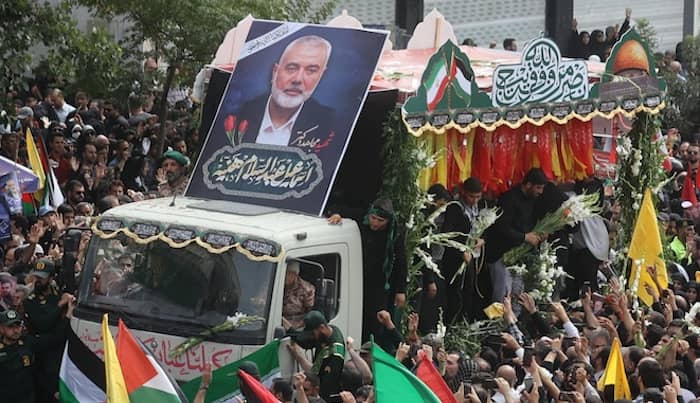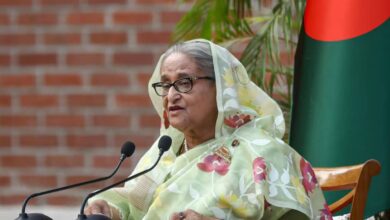
Funeral procession for Ismail Haniyeh, the political leader of the Hamas who was assassinated in a blast in Tehran on Wednesday was held in Iran today, which tens of thousands of people attended.
Laying the dead body into a funeral, Iran’s Supreme Leader Ayatollah Ali Khamenei performed funeral prayer for the Hamas leader’s dead body and will be flown to Qatar for burial.
Since the assassination, media in the United States have reported that the Iranian officials have declared that the Supreme Leader has given an order to retaliate directly against Israel that Tehran Deems was behind on the attack on its soil.
Israel has not directly addressed the assassination of Haniyeh but Prime Minister Benjamin Netanyahu has said that Israel has inflicted considerable blows on its foes in recent days in addition to the assassination of a Hezbollah mastermind in Lebanon shortly before the strike in Tehran.
Netanyahu spoke to the Israelis saying that more difficult times are coming for the country as the threats of a large scale war in the Middle East region intensify.
”Since the strike in Beirut we heard threats from all the sides” He stated during his televised speech. ”For whatever may come our way we are set and ready; we will be resilient and strong. ”
First, the UN Secretary-General, Antonio Guterres, warned against what he termed as a ‘dangerous escalation of violence’ in the region.
Hamas’s military wing says Haniyeh’s death will ‘expel the battle to new stages’ and have significant impacts. The group refers to Haniyeh as its supreme commander and thus considered his death as a major set-back to the group.
However, Israeli’s military has also affirmed that its main target of the Gaza strip operation, the Hamas military chief, Mohammed Deif was killed in air raid in the Gaza strip last month. Its delegation listed Deif among those whom the Israeli side blamed for the October 7 attacks which claimed the lives of 1,200 people in the territories of southern Israel.
Recent tensions that appeared in the air and the series of incidents connected with targeted killings make questions about the existence of opportunities to turn the region into a theater of a large-scale conflict, which is why the head of the UN called on all sides to be as restrained as possible.



